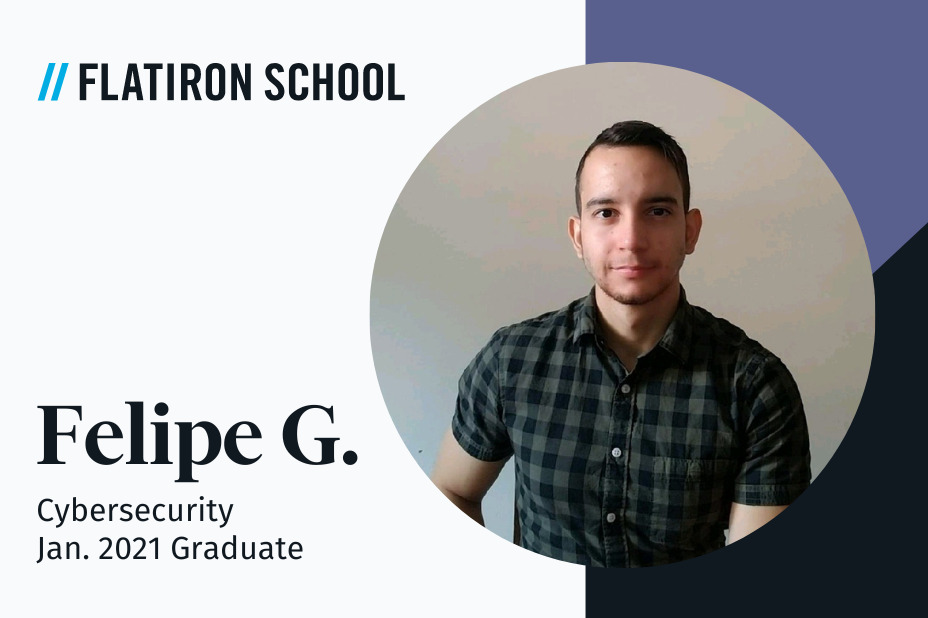From 4th Grade Teacher to Cybersecurity Engineer: Felipe’s Story

For Felipe Giraldo Marin, like many Flatiron School students, the switch to tech came after extensive education and experience in a field far from tech.
How do you pivot from a 4th-grade teacher and professional classical pianist to a cybersecurity engineer?
Much like you get to Carnegie Hall—practice, practice, practice.
For Felipe Giraldo Marin, like many Flatiron School students, the switch to tech came after extensive education and experience in a field far from tech. With bachelor’s degrees in English literature and piano performance and a master’s degree in educational psychology, Felipe’s background wouldn’t make you guess he’d end up in cybersecurity.
But Felipe, who worked as a professional performer, a musical director, and ran a piano studio, eventually found himself wanting more financial stability.
“A career in music is a lot of gig work, even as a director,” he explained. “Students come and go, and that was something that I never wanted to depend on financially. Since I am so passionate about music, I wanted to be able to do music as I wanted and not have to depend on it for rent. I wanted something that would give me stability and allow me to pursue what I wanted when I wanted.”
Finding teamwork in tech
With a long-simmering interest in the tech sector, Felipe began to explore his options—and quickly landed on cybersecurity as a potential path.
“My interest in cybersecurity started with career prospects, and I realized it also jibed with my personality. There’s a lot of emphasis on teamwork—it’s a team and contact sport, and I always wanted to be a part of a big team effort. I liked how hands-on it was.”
With his non-traditional background, Felipe also found the field’s emphasis on practical skills and knowledge compelling. “People really value hands-on experience, so much so that you can do something like a boot camp and get a job that’ll be the beginning of a lifelong career,” he explained.
Felipe quickly settled on Flatiron School, noting that “the big thing was the job outcomes. When I did a little bit of digging into the most reputable boot camps, looking on Reddit, and reading ranking lists, Flatiron School consistently came up as a top-ranked program.”
Improvising in a new way
The Flatiron School cybersecurity program “was intense,” Felipe admits. But, as he noted, the camaraderie between students helped them all work through a tough, comprehensive curriculum.
The skills gained from a life in music, as it turned out, were also more helpful than he expected.
“Music theory is just a study of the relationship between notes, and networking and cybersecurity is often just a relationship between two endpoints. There’s some connection there. But the much bigger and broader connection is in soft skills—not being afraid to improvise, to mess up, to be hands-on. Not being afraid to get in front of people and just perform.”
These days, Felipe is using those skills as a cybersecurity engineer at global insurance provider Chubb.
“I’m in a great program meant for training people with limited experience. They’re keen on development and training more than anything else.”
And that non-traditional background? As Felipe has found, it’s not at all uncommon in the tech space. “There are really high up people with bachelors in literature or philosophy,” he explains. “There are people who are chefs before going into cybersecurity. It’s a very diverse field with all backgrounds. Learning and understanding more is a lifelong road.”
Disclaimer: The information in this blog is current as of October 15, 2021. Current policies, offerings, procedures, and programs may differ.



